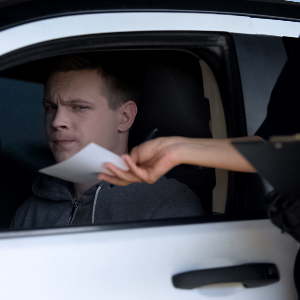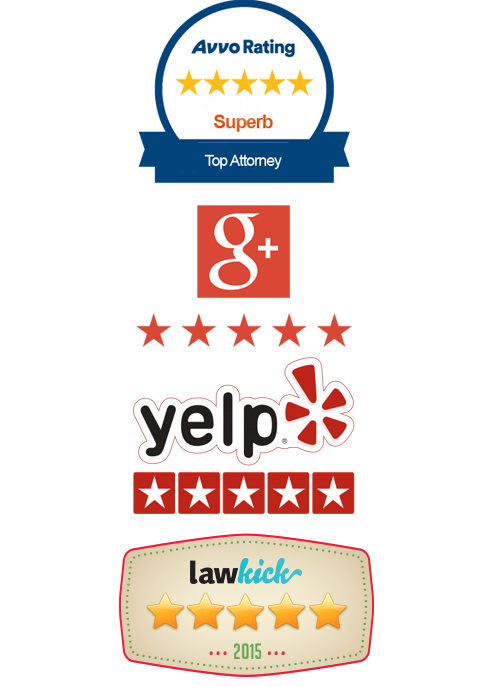Can You Get a Restricted License after a DUI in California?

Millions of Americans are arrested for driving under the influence each year, with most stops beginning the same way: a pair of low beams in your rearview mirror that flash as you’re blinded by red and blue strobe lights. The tap of a flashlight rapping on the window initiates a series of tests designed to gauge your physical coordination. If the arresting officer has a reasonable suspicion that you’ve been driving while impaired by alcohol or drugs, they may confiscate your license and provide you with a pink slip of paper—known as a Notice of Suspension—that allows you to drive unrestricted for 30 days. At this point, the DMV begins the process of suspending or revoking your license.
Perhaps the most dreaded penalty after a DUI conviction is having your driver’s license suspended. It’s nearly impossible to get around California cities without the use of a vehicle, whether you’re going to and from work, running errands, seeing family, or going to school. Fortunately, California permits restricted driving privileges for many DUI offenders, which may allow them to go to and from their job, their required DUI school, or any other essential locations. From your eligibility to what happens to your driver’s license after a DUI, here’s everything you need to know about obtaining a restricted license in California.
How Long Are You Permitted to Drive after Being Arrested for a DUI?
When you are arrested for a DUI and receive an order of suspension or revocation, you may use your temporary license to drive for 30 days from the date of the order of suspension or revocation was issued. In order to continue to drive on the temporary license beyond 30 days, you must have requested a DMV hearing within 10 days of the date of your arrest.
If the DMV hearing is properly requested within 10 days, the temporary license continues to be valid through the outcome of the hearing. Once the DMV hearing has concluded and if a decision to suspend has been rendered, you must then apply for a restricted license for the period of your suspension or revocation in order to drive to and from work, school, and any court-ordered programs, such as DUI classes.
What Is a Restricted License after a California DUI, and How May You Obtain One?
A restricted license allows individuals to drive under special circumstances and is intended to allow drivers who would otherwise have their licenses completely suspended to continue to operate motor vehicles under specific contexts and where certain conditions are met. To obtain a restricted license, you must do the following:
Determine Whether You Are Eligible
To obtain a restricted license, you must first determine whether you are qualified for one. In some cases, the judge may directly tell you at sentencing that you may apply for a restricted license. If the judge does not address your eligibility, it is important to note that the only people who are ineligible for a restricted license are drivers who already had their license suspended or those who refused to take a chemical test after their arrest.
Install an Ignition Interlock Device
Prior to January 1, 2019, California drivers were required to complete a mandatory suspension—sometimes called a “hard suspension”—for a period of 30 days before they could get a restricted license. Today, you may immediately begin driving with restrictions after the installation of an ignition interlock device (IID). An IID, which is installed on the vehicle’s steering column, acts like a breathalyzer and requires a clean breath to start up the car and continue driving the vehicle. If the driver doesn’t blow an alcohol-free breath into the IID, the car will not start.
Enroll in DUI School and Other Court-Ordered Programs
The DMV may not agree to give you any driving privileges unless you comply with the terms of your sentence. The most basic requirement you must meet is to enroll in DUI traffic school, which comprises a series of classes that re-teach you to drive safely. Likewise, depending on your circumstances, some DUI sentences may require you to enroll in other programs, such as addiction treatment groups.
Apply for Your Restricted Driver’s License
Once you have finalized all of the required steps, you may apply for your restricted driver’s license at your local DMV office. Note that you don’t necessarily have to complete DUI school and other court-ordered programs before you may get a restricted license, but you must show proof of enrollment. You may also have to pay a small fee and purchase an SR-22 Form from a licensed insurance agent, which proves to the DMV that you are insured.
A credible DUI lawyer may help you understand California law and the restricted licensure rules that apply to you based on the circumstances of your case.
Contact an Experienced DUI Defense Lawyer at the Aron Law Firm
If you or a loved one is facing a DUI charge, speak with a trusted DUI defense attorney as soon as possible. The expert lawyers at the Aron Law Firm are here to protect your rights, not only by helping you fairly obtain a restricted license but also by potentially reducing or completely eliminating your DUI charges altogether. Our legal team may investigate your case in detail and work to build you a robust defense. We are well-versed in DUI defense law and may help you avoid the consequences that stem from this offense.
At the Aron Law Firm, we understand what you are dealing with and have experience protecting clients from a wide variety of criminal charges. We take a client-centered approach to help make the legal process as painless as possible. To speak with a criminal defense attorney, schedule a consultation by giving us a call at (805) 500-7536 or by completing our online contact form today.

EXPERTLY REVIEWED BY
William M. Aron
April 5, 2024
Former Deputy District Attorney William Aron received his Juris Doctorate from the Duke School of Law and has amassed 20 years of experience practicing law. Attorney Aron dedicates his practice to defending the accused, and is devoted to keeping his clients out of prison.

